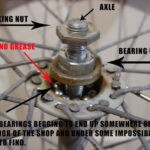3 Reasons Why Luxury Cars Depreciate so Quickly
People buy luxury cars because they provide an increased level of comfort, performance, and quality. But we also know the fact that luxury cars depreciate at a higher rate than regular cars.
In this article, I am going to answer this intriguing question “Why do luxury cars depreciate quickly?” and I will also list down some luxury cars with the fastest and slowest depreciation rate
Why Do Luxury Cars Depreciate so Quickly?
Luxury cars depreciate quickly because their owners are more likely to trade them in when they become old. Whereas, a used car purchaser is unlikely to pay a hefty premium for an outdated model.
Luxury cars often fail to maintain their value irrespective of the brand. It is common for a luxury car to lose half of its value after just three or four years of usage. Every other year, a newer model of the same luxury car is released, which devalues the preceding model.
The reliability issues and high maintenance costs of luxury cars also play a major role in their steep depreciation.
Now, let’s have a closer look at the three main reasons behind luxury cars’ quick depreciation.
Also read: Are Maserati Parts Expensive? (12 Examples)
1. Robust Supply
The resale value of any car model is determined by the supply and demand principle. There is no shortage of used luxury cars in the market, but the people who can afford them are often the least interested in buying a used one.
Technology is rapidly changing nowadays, and almost every year a new and better version of the same model is released. The latest version offers new functions, features, and gadgets which automatically reduces the value and demand of the previous model.
After just a few years of usage, the older model is considered outdated. At the same time, people are enticed to buy the latest model and this circle continues.
2. Initial Price
Like any other lavish purchase, luxury cars are also very expensive and can cost a fortune to purchase. For most cars, a higher initial price means quicker depreciation.
Although the percentage depreciation for luxury vehicles may not appear to be significant each percentage represents a significant amount of money. The moment a luxury car left the lot it loses five to ten percent of its value.
Regular cars in a similar segment or category are priced at a much lower value. To compete with them in the used market, luxury cars tend to lose a substantial amount of value during the initial years.
3. High Cost of Ownership
Luxury cars are expensive to own and maintaining a second-hand luxury car is often not viable in the long run.
The cost of owning a used luxury car will be the same or even more than the cost of maintaining a new one. The yearly maintenance cost of used luxury cars like BMW and Mercedes can even exceed $2000. Their parts are also very expensive and if any major repair comes in you can expect to pay another $1000 to $2500.
The high ownership cost of luxury vehicles is another reason behind their quick depreciation and most people aren’t willing to spend huge amounts on a used car.
Also read: BMW vs Mercedes: (Depreciation Comparison)
Which Luxury Cars Depreciate the Fastest?
There are plenty of luxury cars available in the market that have a steep depreciation rate. Three of such cars are discussed below:
- BMW i3
The BMW i3 has the fastest depreciation rate among all luxury cars. It depreciates 68 percent after just five years of ownership.
It is BMW’s first mass-produced zero-emission vehicle and was launched in 2013. For distant traveling, a range-extending petrol engine variant is also available. Despite all the praise and innovation, the BMW i3 fails to retain its value. It tops the list of luxury cars with the worst resale value after 5 and 7 years.
The depreciation and residual value of the BMW i3 are shown in the following table:
| Vehicle Age | Depreciation | Residual Value | Vehicle Worth |
| 1 | $14,295 | 73% | $37,802 |
| 2 | $22,662 | 57% | $29,435 |
| 3 | $30,544 | 41% | $21,553 |
| 4 | $32,279 | 38% | $19,818 |
| 5 | $35,405 | 32% | $16,692 |
| 6 | $37,656 | 28% | $14,441 |
| 7 | $39,344 | 24% | $12,753 |
| 8 | $40,300 | 23% | $11,797 |
| 9 | $41,185 | 21% | $10,912 |
| 10 | $42,003 | 19% | $10,094 |
The initial selling price of the BMW i3 is $52,097 and one of the main reasons behind its quick depreciation is this enormous price tag. Similar electric vehicles from other car brands like Tesla and Nissan are priced much lower than the i3.
Also read: Do Car Salesmen Get Discounts? (Explained)
- Range Rover
Land Rover Range Rover or simply known as Range Rover performs poorly when it comes to value retention. After just five years of ownership, it depreciates around 65 percent.
The Range Rover line was introduced in 1970 and currently, its fifth-generation is available in the market. Additional models like Range Rover Sport, Range Rover Evoque, and Range Rover Velar are also sold under its name. All of these models follow a similar depreciation trend and are very quick to lose their value.
The depreciation and residual value of the Range Rover are shown in the following table:
| Vehicle Age | Depreciation | Residual Value | Vehicle Worth |
| 1 | $48,680 | 68% | $103,113 |
| 2 | $55,511 | 63% | $96,282 |
| 3 | $66,379 | 56% | $85,414 |
| 4 | $84,382 | 44% | $67,411 |
| 5 | $96,009 | 37% | $55,784 |
| 6 | $103,265 | 32% | $48,528 |
| 7 | $107,652 | 29% | $44,141 |
| 8 | $110,520 | 27% | $41,273 |
| 9 | $121,920 | 20% | $29,873 |
| 10 | $126,201 | 17% | $25,592 |
The initial selling price of Range Rover is $151,793. Some reasons behind this huge depreciation are its expensive parts, reliability issues, and high initial cost. Range Rover sits at the bottom of the J.D. Power reliability ratings and it also has a legacy of quality problems.
- Jaguar XF
The Jaguar XF is at number three on my list as it depreciates 61 percent after five years of operation.
The initial selling price of the Jaguar XF is $63,441. Almost all Jaguar cars are guilty of having quick depreciation and the main reason is their poor build quality. Because of the scarcity and complex engineering, they are also very expensive to maintain and repair.
The depreciation and residual value of the Jaguar XF are shown in the following table:
| Vehicle Age | Depreciation | Residual Value | Vehicle Worth |
| 1 | $16,679 | 74% | $46,762 |
| 2 | $24,120 | 62% | $39,321 |
| 3 | $25,008 | 61% | $38,433 |
| 4 | $34,042 | 46% | $29,399 |
| 5 | $38,547 | 39% | $24,894 |
| 6 | $43,248 | 32% | $20,193 |
| 7 | $45,354 | 29% | $18,087 |
| 8 | $49,668 | 22% | $13,773 |
| 9 | $49,941 | 21% | $13,500 |
| 10 | $52,193 | 18% | $11,248 |
Which Luxury Cars Don’t Depreciate so Fast?
Below are my top three luxury car models that retain their value amazingly well:
- Audi R8
The Audi R8 is a true supercar both in terms of performance and value retention. It only depreciates 40 percent after five years of ownership.
The initial selling price of the Audi R8 is $193,217. Despite its hefty price tag Audi R8 successfully maintains its value and there is a huge demand for a used R8. Another factor behind its slow depreciation is the limited supply of new models.
Audi R8 also gained huge popularity after it became the personal vehicle of Tony Stark aka Iron Man in the Marvel Cinematic Universe.
The depreciation and residual value of the Audi R8 are shown in the following table:
| Vehicle Age | Depreciation | Residual Value | Vehicle Worth |
| 1 | $35,455 | 82% | $157,762 |
| 2 | $54,816 | 72% | $138,401 |
| 3 | $64,940 | 66% | $128,277 |
| 4 | $66,679 | 65% | $126,538 |
| 5 | $76,533 | 60% | $116,684 |
| 6 | $77,210 | 60% | $116,007 |
| 7 | $85,730 | 56% | $107,487 |
| 8 | $86,948 | 55% | $106,269 |
| 9 | $88,880 | 54% | $104,337 |
| 10 | $90,812 | 53% | $102,405 |
- Lexus RX 350
The Lexus RX 350 consistently top the rankings when it comes to maintaining value. It only depreciates 41 percent after five years of operation.
Lexus is a luxury division of Toyota Motor Cooperation and because of Toyota’s reputation for reliability, Lexus RX 350 is widely popular among luxury car owners. It is by far the best performing car in the luxury crossover SUV segment and holds its value incredibly well.
The depreciation and residual value of the Lexus RX 350 are shown in the following table:
| Vehicle Age | Depreciation | Residual Value | Vehicle Worth |
| 1 | $11,059 | 80% | $45,626 |
| 2 | $12,692 | 78% | $43,993 |
| 3 | $16,546 | 71% | $40,139 |
| 4 | $19,194 | 66% | $37,491 |
| 5 | $23,116 | 59% | $33,569 |
| 6 | $24,981 | 56% | $31,704 |
| 7 | $30,258 | 47% | $26,427 |
| 8 | $32,327 | 43% | $24,358 |
| 9 | $36,732 | 35% | $19,953 |
| 10 | $36,772 | 35% | $19,913 |
The initial selling price of Lexus RX 350 is $56,685. During the first year, it loses 20 percent of its value and for the rest of the lifespan, it depreciates less than 10 percent per year.
- Porsche 911
Porsche 911 holds its value extremely well and is considered one of the greatest cars of all time. After five years of usage, it only depreciates 45 percent and also remains strong for the rest of the years.
Porsche 911 is a 2+2 high-performance sports car and was first produced in 1964. Since then more than one million models of 911 have been sold. It was fifth on the list of Car of the Century and has won multiple awards.
The initial selling price of the Porsche 911 is $183,187. The car has countless die-hard followers who are willing to pay any cost for the right model.
The depreciation and residual value of the Porsche 911 are shown in the following table:
| Vehicle Age | Depreciation | Residual Value | Vehicle Worth |
| 1 | $42,499 | 77% | $140,688 |
| 2 | $49,607 | 73% | $133,580 |
| 3 | $64,464 | 65% | $118,723 |
| 4 | $73,368 | 60% | $109,819 |
| 5 | $81,604 | 55% | $101,583 |
| 6 | $84,046 | 54% | $99,141 |
| 7 | $95,276 | 48% | $87,911 |
| 8 | $106,157 | 42% | $77,030 |
| 9 | $109,344 | 40% | $73,843 |
| 10 | $114,657 | 37% | $68,530 |
Also read: Porsche Depreciation: 6 Models Compared
How to Buy a Luxury Car that Won’t Lose too Much Value?
Depreciation is an ongoing process that cannot be prevented, regardless of how well you maintain your vehicle. You can still avoid losing too much money by following the below recommendations:
- Luxury cars depreciate the most during the initial years therefore avoid buying a brand-new luxury car if you don’t want to keep it for a long time.
- Keep the total number of owners to a bare minimum and try to purchase a used luxury car from the original owner rather than a company or a dealership.
- Avoid buying a luxury car with unusual colors because cars with regular colors like white, black, and gray have higher resale value than cars with exotic colors.
- Choosing the right model is the key. Look for a luxury car that is reliable and already has an established fanbase.
- Always keep your car in good working condition and never miss the maintenance after specified intervals.






